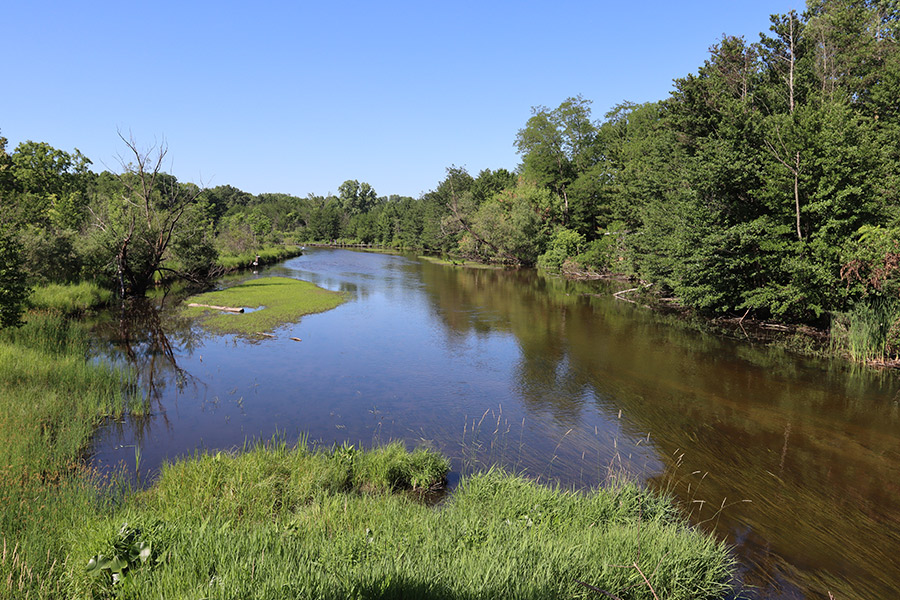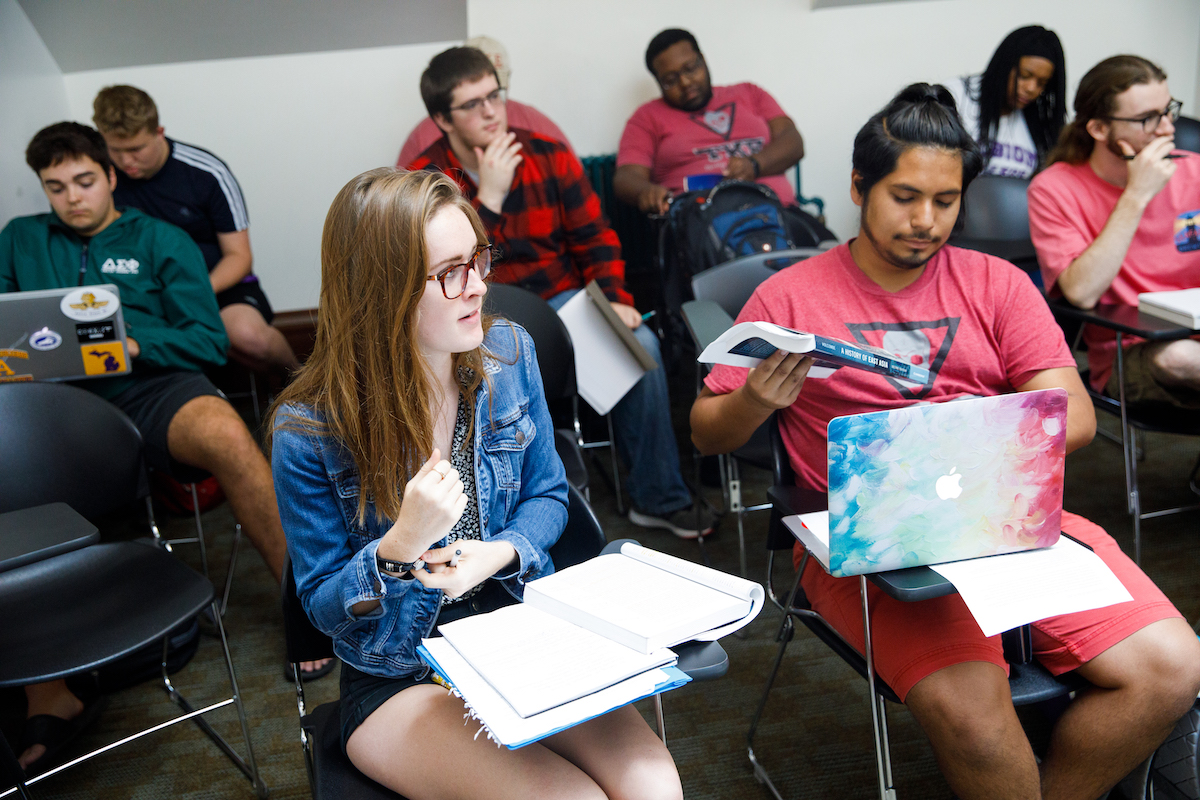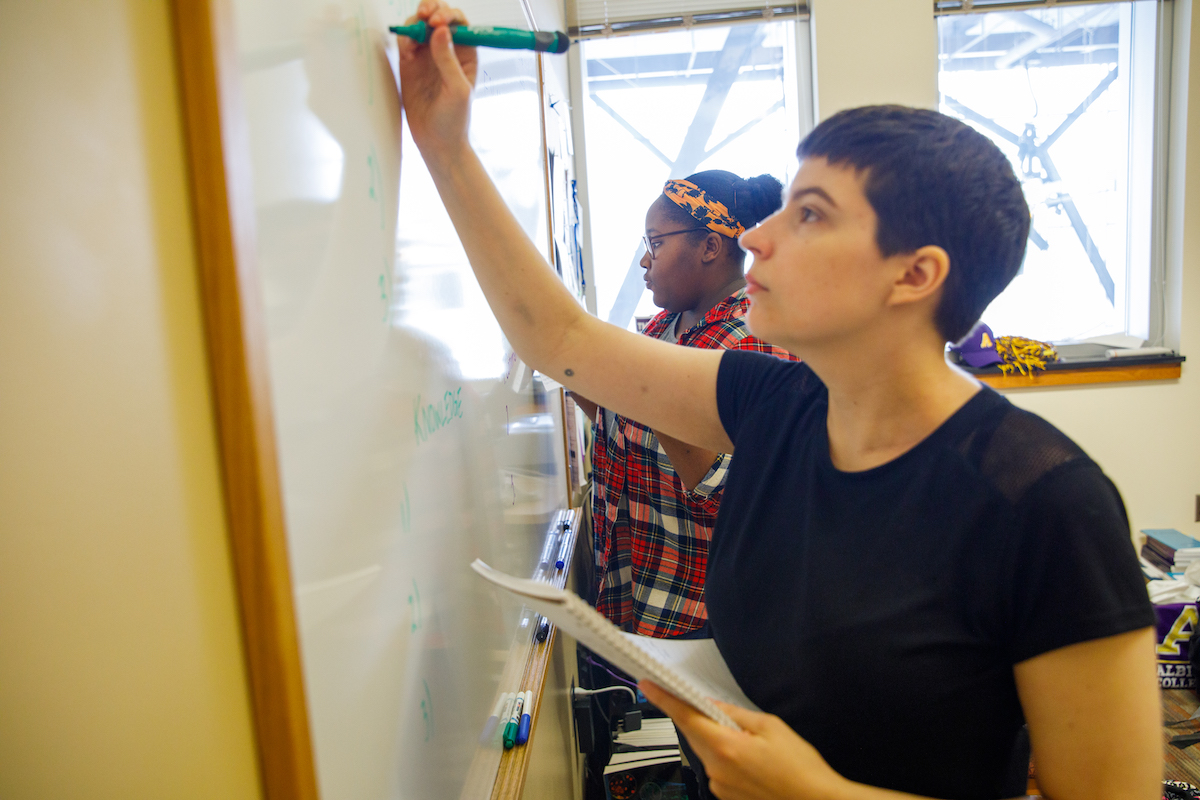Albion College Collaborates with Harrington Elementary on Freshwater Literacy
A state MiSTEM grant is facilitating new K-5 lessons to be introduced in 2023.
June 22, 2022

The Kalamazoo River at Whitehouse Nature Center is a short walk from Harrington Elementary School.
Through a recent grant from the state Department of Environment, Great Lakes and Energy and the MiSTEM Network, Albion College is partnering with Marshall Public Schools (MPS) to develop curriculum for Harrington Elementary School that will teach core grade-level concepts in freshwater literacy to K-5 students.
Beginning in January, with lesson plans for both the classroom and outdoors created this summer and fall, the WaterSmarts project will involve up to 16 MPS teachers and 300 students in problem-, place- and project-based learning. With a focus on the nearby Kalamazoo River, students will learn about the vital importance of groundwater through concepts that match their grade levels and link to state standards in science and social studies.
“Encouraging people in the community, especially children, to engage with their natural environment was the biggest motivation for me,” says Dr. Joe Lee-Cullin, assistant professor of earth and environment at Albion College, who is currently developing the curriculum with Albion education students Sarah Stockton, ’23, Mason Darden, ’23, and Mikayla England, ’24. “I think it’s especially important to have conversations about the groundwater, which many people don’t ever think about,” Lee-Cullin says. “Groundwater plays such an important part of our daily lives as the primary freshwater resource that we depend on, not just in our homes but across every industry, from agriculture to textiles.”
Dr. Ellen Wilch, currently an administrative assistant with the College’s Department of Earth and Environment and a former groundwater hydrologist, educator and consultant, was a co-writer of the grant proposal and emphasizes its community-building components in addition to students’ core learning outcomes. She mentions that the NAACP Albion Branch, Albion District Library, Albion’s Big Read and the College’s Center for Sustainability and the Environment all have expressed interest in collaborating in the months ahead.
“We’re doing our part to build school and community partnerships. For example, I think it will be really interesting to do some local history,” Wilch says, citing Albion’s 19th-century identity as a mill town. But she also describes present-day connections that the grant will foster. “Marshall is just a little bit down river from Albion, and there needs to be more ways in which we can build community between Albion and Marshall. We do have a common history of being Kalamazoo River towns; we share that history.”
In weekly lessons from January to May 2023, foundational learning established in Harrington classrooms during the winter months will move outdoors by spring. Along with regular excursions to the Kalamazoo River through the College’s Whitehouse Nature Center next door, field trips to a working water mill, a nearby fish hatchery and Lake Michigan are planned.
“It is an exciting opportunity. The students of Albion are fortunate to have a beautiful freshwater resource basically right outside their school door,” says Karyn Hall, co-principal at Harrington. “With so much emphasis on reading and math in the overall curriculum, providing solid science lessons is important for our students. I hope that this sparks an interest in learning about the environment in which we live and creates a love for nature and preserving it that perhaps students didn’t have previously.”
Zooming out from the groundwater focus, that learning spark is indeed the overarching goal.
“Kids are always curious when you give them opportunities to be so,” Lee-Cullin says. “I hope we have a robust and fun program that can be passed on and used by teachers across MPS. Being prepared for a future that almost certainly brings water crises with it is of the utmost importance. Education of a subject is a key step in fixing large-scale problems in society.”

